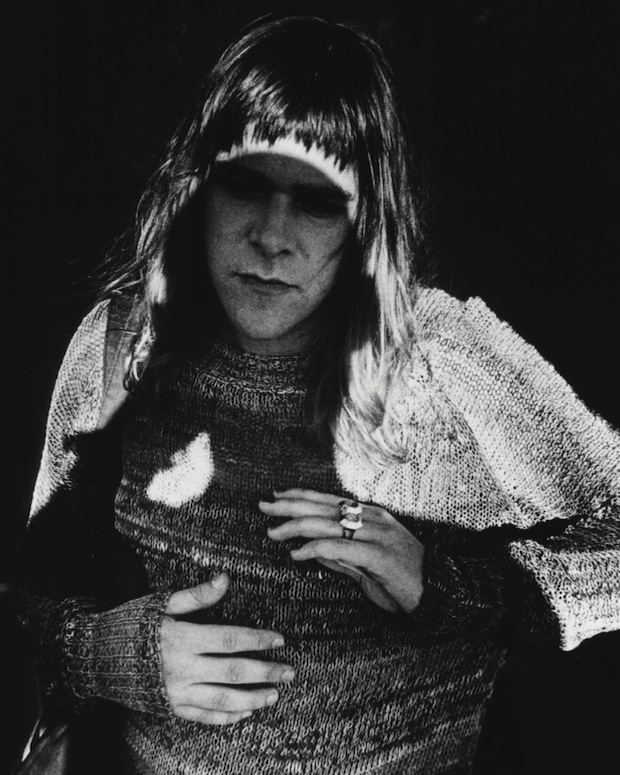The trip back into Los Angeles is a quiet one. Traffic is light. “I think everyone was on their best behavior because you were there,” Pink says above the crackle of AM conservative talk radio he had requested. “That was a very successful family occasion.” Over the years, Pink explains, his half-sister’s accident has had a healing effect. The immense grief has prompted his father and stepmother — whom he refers to as “high-society types” — to get in touch with their “weird” and make peace with his mother, a lifelong “weirdo” on the other side of the class divide. As a result, however, “they were essentially ostracized from their society, their group of friends,” he says. “Tragedy can hit in many ways.”
But Pink is still unsure how Elana’s accident has really impacted his life. He stopped driving for several years, stopped writing, stopped recording. He once told me he’d wanted to write a song to play at her bedside in the nursing home, but didn’t feel as though he’d come up with anything “perfect enough” for her. “I still haven’t,” he says, his chin on his chest. “I haven’t seen her for a while. We were just becoming close, she was just coming of age, you know? I was giving her records. Kids in her class were fans of mine. She didn’t see me as so much of a freak anymore.”
Like it has several times over the course of the weekend, conversation eventually veers back toward Geneva Jacuzzi. “[She] was one of the few people I took to see my sister in the hospital. I had this doomsday outlook, and then I realized, in the course of introducing her to my sister, how safe I felt. She accepted me just the way I was, which was the first time I’d ever experienced that.”
He turns to look at me. “That’s been my rock for the past eight years. When I’ve been touring, I was doing it towards an end: Geneva and our family. I went out and I said, ‘I’ll sell out. You don’t have to worry about it. You don’t have to worry about that kind of stuff. I’ll take care of you.’ But what do I have to spend money on now? That’s the question. It makes me want to cry, if you really want me to talk about it. It makes me want to fucking cry.”
A month later, Pink and I meet for an early lunch. As he comes out the door of his apartment, he apologizes for having not heard the knock on the door earlier — a few friends are “jamming” upstairs. As he was the last time I saw him, he is in distress, his sentences switching back on themselves more violently than usual, as if his feelings are changing shape before he can share them. With only a few weeks left until his album’s release and the band’s first tour in a bus, Koh has stopped responding to calls or text messages. His girlfriend of 14 years has just left him. “I’m worried,” Pink says, as we walk. “For him, as a person, you know? I hope he’s eating. But I don’t know what to do. I don’t know if I should barge in on him. Does he want an intervention? I don’t know.”
We sit at a table in an Italian restaurant along North Figueroa and he orders some pasta and a Coke. Gradually, he begins to speculate about Koh, growing more and more upset. “He’s probably fed up with me,” Pink says, shaking his head. “This last record was so much fun to make. I’d never done it before. I’d never had a studio that I could work in the whole time. That’s what I’ve been working towards. It was lovely. I loved it. I loved having the connection with the guys, and I think that everybody felt like that.” He pauses. “I wanted to be able to see what happens when I have resources at my disposal. I’ll probably just end up right where I started. I’ve always known that; it’s just a matter of when. [But] it’s not a goal for me to end up in my bedroom alone.”
“Do you like to be alone?” I ask him.
“I hate it,” Pink says twice, very softly. “You know what I think, man? I’m not worried about whether I’ll be alone forever. Because I’ll always be alone, and you’ll be alone. We always forget that. When I first started, I had all the confidence in the world and none of the skills. I was waving my arms in the air, a human trying to be noticed. And there’s been obstacle after obstacle ever since I was born. The second I picked up a guitar, I had people telling me, ‘stick to drawing.’ But that’s my fuel. Insecurity is my fuel.” He begins to run his hand through his hair. “All my hang-ups are just the first act in something more important: when my kid comes along, if that happens,” he says, eyes shimmering. “Ultimately, I just want to be a dad. I’m old-fashioned like that.”






